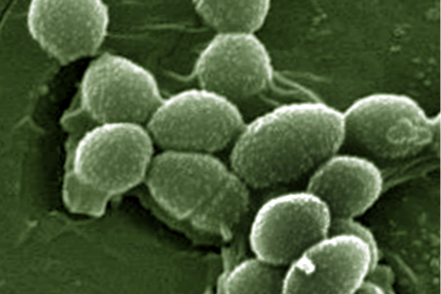Pathogenic microbial ecosystems are often polymicrobial, with interbacterial interactions driving the development and fitness of these communities. Enterococci, commensals of the gut microbiota in both animals and humans, can facilitate the growth and pathogenicity of various pathogens, such as Clostridioides difficile, Staphylococcus aureus, Pseudomonas aeruginosa, Escherichia coli, Gardnerella vaginalis, and Candida albicans.

This facilitation occurs through mechanisms such as upregulation of virulence, metabolic cross-feeding, biofilm formation, immune evasion, and transmission of drug resistance. The prominent role of enterococci in polymicrobial infections contributes to recurrent infections with elevated rates of treatment failure.
Given that multi-drug resistant (MDR) enterococci tend to overgrow in the gut after antibiotic treatments, enterococci-associated polymicrobial infections are challenging to eradicate using routine antibiotics. Consequently, exploring effective therapeutic strategies for enterococci-associated polymicrobial infections has become an urgent and challenging problem.
Dietary therapeutic
Kui Zhu and his colleagues at China Agricultural University have developed a dietary therapeutic for enterococci-mediated infections. Initially, they demonstrated the bacterial cooperation whereby enterococci promote the expansion and pathogenicity of enteric Salmonella enterica serotype Typhimurium (S. Tm). Subsequently, they discovered that oral administration of coumarin glycosides reverses the promotion of enterococci to S. Tm infection.
Specifically, enterococci-derived β-glucosidases (BGLs) hydrolyze coumarin glycosides into antibacterial aglycones, thereby inhibiting the growth of S. Tm by competing for iron. The efficacy of coumarin glycosides in intervening in enterococci-mediated polymicrobial infections has been validated in both in vitro and animal models, suggesting that diet-based strategies offer promising approaches to mitigate enteric polymicrobial infections.
The study was published in Research, the first Science Partner Journal launched by the American Association for the Advancement of Science (AAAS) in collaboration with the China Association for Science and Technology (CAST).







No comments yet